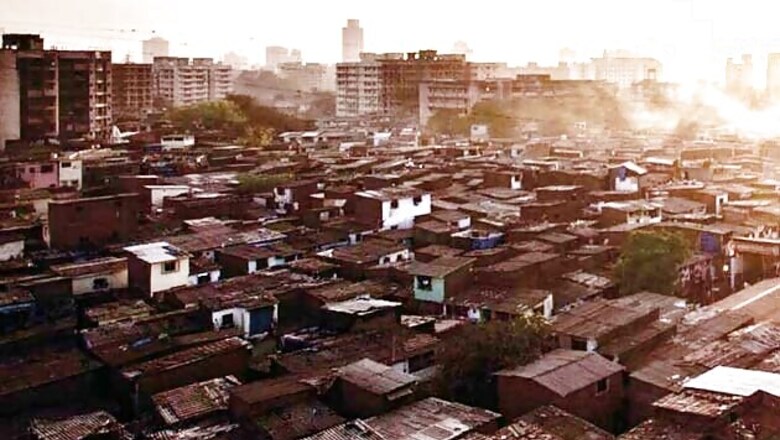
views
Indian cities don't score very high on several parameters such as laws, policies, institutions, processes and accountability mechanisms that strongly influence quality of life. According to the Annual Survey of India's City-Systems by Janaagraha which was carried out in 21 major cities of India across 18 states, the quality of life is poor.
Janaagraha studies the 21 cities on the parameters of Urban Planning & Design; Urban Capacities & Resources; Empowered & Legitimate Political Representation and Transparency, Accountability & Participation and found that Indian urban centre are way behind the top cities of the developed world. The cities where the survey was carried out include Ahmedabad, Bhopal, Bhubaneswar, Bangalore, Chandigarh, Chennai, Dehradun, Delhi, Hyderabad, Jaipur, Kolkata, Kanpur, Lucknow, Ludhiana, Mumbai, Patna, Pune, Raipur, Ranchi, Surat and Thiruvananthapuram.
Indian cities have scored in the range of 2.5 to 4.0 on 10 as against the global benchmarks of London and New York which have scored 9.6 and 9.3 respectively.
The performance is equally poor across all the four parameters. Average scores of Indian cities in each of the City-System components are 2.2, 2.6, 4.9 and 3.3 respectively. The City-System averages and the city averages taken together indicate that no Indian city has made sufficient and uniform progress in these areas. The ASICS 2014 score indicate that much work needs to be done to make out cities world class.
Kolkata scored the highest at 4.0 riding on its sound electoral process. It has a robust State Election Commission and witnessed high voter turnouts. Thiruvananthapuram features a close second rank to Kolkata overall, with a marginal score difference. It is the only city with a local body ombudsman. Chandigarh scores the lowest overall at 2.5 due to its poor legal frameworks. It lacks a contemporary Planning Act, Public Disclosure Law and Community Participation Law. Apart from the above two, the other cities in the top five are Bhopal, Patna and Delhi.
There is an urgent need to focus on transparency in Indian cities as 17 out of the 21 cities score a zero on Open Data compared to a perfect 10 for both London and New York.
Delhi comes out as the best planned city. Despite being a planned city, Chandigarh scores the lowest on planning, a paltry 0.6 as it does not have a contemporary planning law in place. All cities score 0 on compliance to Spatial Development (Master) Plans.
Mayors of bigger cities like Delhi, Mumbai, Bangalore and Ahmedabad don't have five year terms nor are they directly elected. While 16 of the 21 ASICS cities have passed the Community Participation Law, but no city except for Hyderabad has constituted Area Sabhas.
Delhi and Mumbai have 1,260 and 895 employees per 100,000 population vis-a-vis global cities. New York and London for instance, have 5,338 and 2,961 per 100,000 population.
Indian cities have scored between 1.4 and 7.1 on audit of urban local bodies and only Mumbai, Pune and Surat disclose their audits in public domain.
Smaller cities have better and relatively newer legislations compared to the bigger cities. Cities such as Thiruvananthapuram, Bhopal and Raipur find a place in the top 10 in the analysis whereas cities like Hyderabad and Bangalore finished 17th and 18th respectively.
Over the years urban residents have become immune to living with overflowing garbage in their backyards, arduous commutes to their workplaces, shabby housing and minimal social or cultural outlets. These day-to-day travails point to a deeper malaise within our cities - that of poorly-resourced city governments and badly managed cities.
The overall rank and score of the cities are as follows:
1) Kolkata 4.0
2) Thiruvananthapuram 3.9
3) Bhopal 3.7
4) Patna 3.6
5) Delhi 3.6
6) Raipur 3.5
7) Surat 3.5
8) Pune 3.5
9) Mumbai 3.5
10) Ahmedabad 3.4
11) Jaipur 3.3
12) Chennai 3.2
13) Lucknow 3.2
14) Kanpur 3.2
15) Ranchi 3.1
16) Dehradun 2.9
17) Hyderabad 2.9
18) Bangalore 2.8
19) Ludhiana 2.8
20) Bhubaneswar 2.6
21) Chandigarh 2.5
####
Asics Report 2014 by Network18




















Comments
0 comment